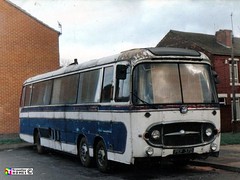
- Read An Opinion On:
- Used Caravans For Sale Geelong
By Ben Herman
Caravans of golf carts log numerous miles each day on golf courses around the country as they carry golfers to the next hole, pro shop, or the clubhouse for some grub. Golf carts are an integral part of operations at many golf courses. This is especially true on large golf courses or those that make their way through rugged terrains. Most golfers would find walking a course while toting the weight of a golf bag cumbersome and unappealing, and walking wouldn’t even be plausible at some golf courses. Most golfers would instead prefer to have a golf cart do the hard work of navigating over rugged terrain and up steep, mountainous elevations for them.
Okay, certainly we can agree that keeping as many golf carts as possible motoring is essential to happy golfers and for the golf courses bottom financial line. But is it better to repair golf carts? Or is it a wiser investment to continually purchase ‘new’ golf carts to meet ever-growing numbers of golfers? The answer of course is dependent in large part on the amount of money that a golf course wishes to allocate towards either the purchasing of new golf carts, or the repairing, repowering of golf carts already in inventory. A brand new golf cart may run longer before any problems prop up compared to a golf cart that has been refurbished. But keep in mind that with the demands placed upon the average golf cart, even ‘new’ ones will eventually need some repairs to keep them running smoothly. It might be wiser to implement a plan wherein ‘new’ golf carts are added to your ‘pool’ of golf carts when possible and ‘older’ carts repaired until their repair costs start to ‘outweigh’ the amount of time the carts are available for use on the fairways.
You can reduce the costs of golf cart repairs by opting to ‘repower’ your golf carts with small engines such as those manufactured by Briggs Stratton, Cushman, Kohler, and Honda, who have the small engines with the power you need to keep your golf carts running. The manufacturers of these small engines have designed them to withstand heavy workloads, even the workload placed upon the average golf cart. These small engines come in a wide assortment of sizes, available horsepower, and different transmission set-ups, to meet all of your power needs. These engines also use a variety of sources such as gasoline, diesel, and electricity from batteries for their power: making them quite adaptable to the course-specific needs of every golf course.
The Cushman line of small engines include: the Cushman Truckster and Cushman Haulster. . The Cushman Truckster small engine can provide a golf cart with all the power it needs to traverse rugged terrains with the weight of passengers and equipment on board with ease. The Cushman Haulster is also built to handle heavy loads.
The various manufacturers of these small engines have all worked hard to develop and design the small engines that can put out a tremendous amount of power for their size, stand up to the rigorous demands placed on them with less maintenance required, and at a reasonable enough cost to make them a viable choice for use in the repowering of golf carts. You will find these engines are a cost-effective choice for the other equipment used for the maintenance of golf courses such as seeders and mowers. Many of those in charge of keeping the motorized equipment on their golf courses running place their trust in these small engines for all of their power needs.
-2006 Ben Anton
About the Author: Repower Small Engine repair Specializing in products to Repower Onan Engines, Kohler, the Club Car Golf Cart models. Ben Anton, lives in Portland, OR, and writes for Repower.com. Ben works for Labworks Design.com, an Online Marketing and Design Firm.
Source: isnare.com
Permanent Link: isnare.com/?aid=120246&ca=Sports